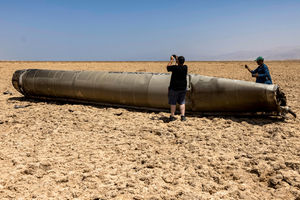Dear government, here’s my advice to you on beating cancer

What you need to know:
- The initiative is aimed at accelerating the fight against cancer, especially in countries where the disease seems to threaten more lives. Here, Sub-Saharan Africa is the case on point.
- As a medic, I strongly applaud this initiative. The timing is ideal for renewed attention in our quest to control cancer.
Last week I came across the former US President, Barack Obama’s speech when he declared an initiative called “Cancer moonshot 2020.”
The initiative is aimed at accelerating the fight against cancer, especially in countries where the disease seems to threaten more lives. Here, Sub-Saharan Africa is the case on point.
As a medic, I strongly applaud this initiative. The timing is ideal for renewed attention in our quest to control cancer.
Over the past decade, our knowledge of the genetic aspects of cancer has dramatically grown. There are now new forms of more targeted remedies that are leading to clinical progress for thousands of patients with cancer.
Additionally, our knowledge of the complexities of cancer treatment has dramatically increased, and new immunological therapies for cancer are generating surprisingly strong results for many patients.
As we continue expanding our knowledge, the opportunities for translating research into cancer practice and doing more and clinical research swell. Yet the resources to execute these opportunities are limited.
I strongly believe that more resources will lead to new scientific knowledge, which will lead to realistic treatment advances for cancer patients worldwide.
So what should we do to embrace the cancer moonshot 2020 initiative?
1. Increase funding for cancer research:
I remember about five years ago, 25 to 30 per cent of medical investigator-generated grant applications were funded but today that number is less than 10 per cent.
Renewed emphasis on funding for comprehensive cancer centers is appropriate. Not only does much of the research occur in comprehensive cancer centers, a great deal of population based-medicine and community outreach programs happen too.
2. Fund cancer screening for early detection:
Resources should be added to insure that all Tanzanians receive appropriate cancer screening. Far too many people, frequently of lower socio-economic status, do not receive basic cancer screening. Early detection is the key to improving cure rates.
3. Improve access to state-of-the-art cancer care:
We must give patients better and more access to clinical care and to clinical research. Only five per cent of cancer patients are treated in clinical trials. This rate clearly needs to rise.
All cancer patients should have access to sophisticated genetic-level treatment for certain tumours and it should be covered by the health insurance industry.
4. Rationalise the cost of cancer treatment
One of the biggest challenges in clinical cancer care, especially in Tanzania, is the cost of new drugs. Over the past 10 years, the cost of cancer therapy has dramatically risen.
Dr Syriacus Buguzi, shows vividly how the cost of cancer treatment is a burden to low income earners in his article published in The Citizen: “Cancer patients dig deeper to pay for treatment at the ORCI.”
Dr Buguzi points out in his article that 75 per cent of cancer patients at the ORCI [ocean road cancer institue] reported in the advanced stages of their disease condition, and more are frustrated by high cost of cancer treatment.



